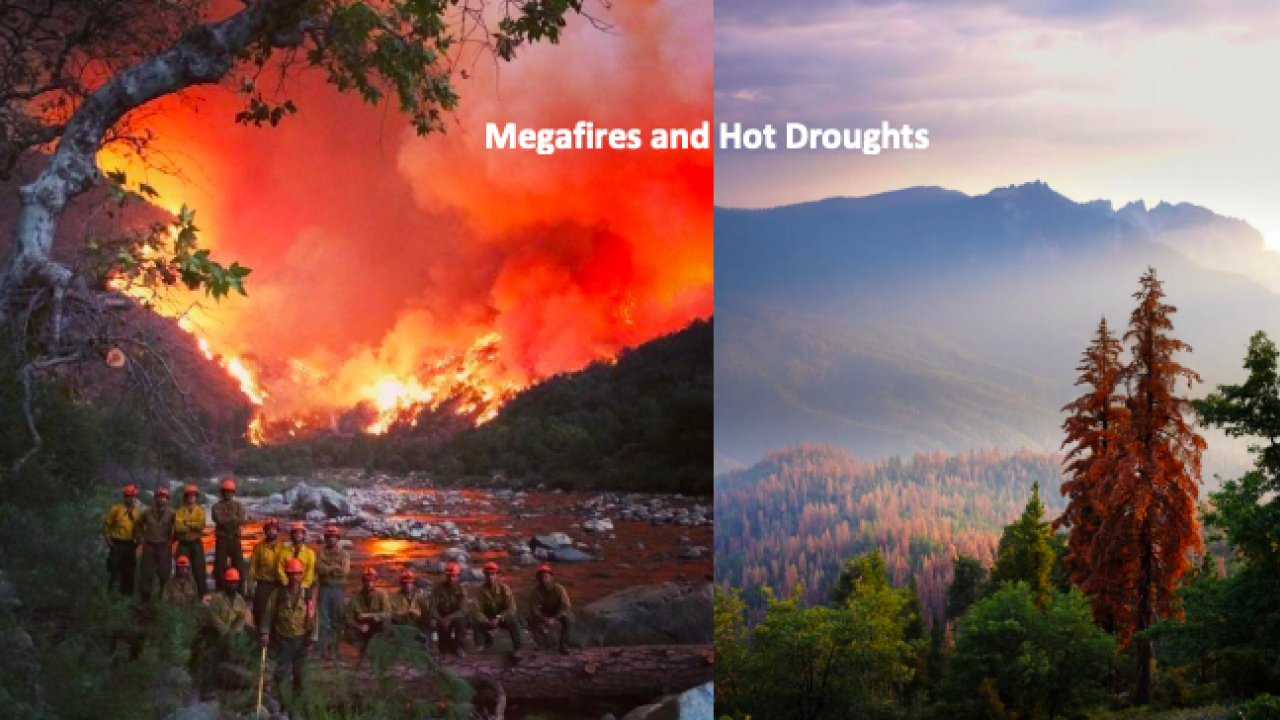California had its worst wildfire season on record in 2020 — enduring seven of the 20 largest wildfires in state history and suffering more than $16 billion in property damage. This dire reality is spurring an unprecedented response in academia, government and the private sector, as outlined in a special webinar hosted by UC Center Sacramento entitled “Do we have the science, tools and policies needed to predict wildfire and its impacts in California?”
Scientific experts have come together to form a climate and wildfire research and practitioner community to sustain agile knowledge development that is responsive to public policy needs. Several of its members led the webinar, summarizing a number of exciting research developments and further introducing the idea of a statewide Climate and Wildfire Institute (CWI). UCLA professor of atmospheric and oceanic sciences Alex Hall moderated the webinar.
“UCLA was a proud participant in this event, and I’m excited to see what happens moving forward,” he said. “It is extremely important that we, as researchers across the state, work with policymakers to address the urgency of a changing climate and all of its consequences, such as wildfires and drought.”
Patrick Wright, director of the California Wildfire and Forest Resilience Task Force, introduced presenter John Battles, professor of forest ecology at UC Berkeley, who stayed on for a question and answer session after his presentation.
“We’re just seeing rapid advances in science and technology,” Wright said. “A lot is happening in this field, but in a very scattered and incremental way.”
To correct that scattered nature, scientists want to take a page from the health community’s approach to tackling the COVID-19 pandemic. Experts in the field of climate change, natural resources, policy and law and public health want to build capacity, share knowledge and coordinate efforts through the CWI, building a quicker and smoother “pathway from science to solution,” Battles said. “Part of thinking about climate change, in general, and wildfires in particular in California, is we need to have statewide leadership, but regional solutions.”
Sean Hecht, co-executive director of the Emmett Institute on Climate Change and the Environment at UCLA School of Law, and Michael Jerrett, professor of environmental health sciences at the Fielding School of Public Health, have also both committed to the CWI consortium.
The idea of a CWI has been talked about for several months informally, Battles said, noting scientists want to maximize their work and avoid duplication of efforts, as megafires and drought conditions continue to worsen and the need for more immediate solutions increases.
The CWI would not be oriented around academic research, but instead would focus on creating a long-term coordinated research and policy strategy to address climate and wildfire, and associated impacts. It would also develop climate solutions in close collaboration with state, federal, tribal, local and private entities in need of high-quality science and technology services to transform new insights into effective practice.
It’s a “bold and audacious” idea and a “new approach,” Wright noted, but one that everyone is welcoming of as they learn more.
To watch the presentation and view supporting documents visit the webinar website.





